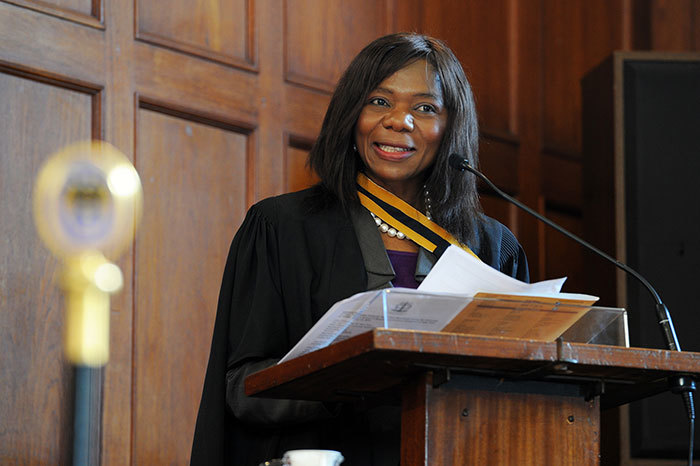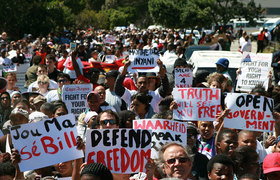How is the Public Protector's role changing?
25 March 2015
At its last briefing for 2014, the Public Protector's Office announced that it would shift focus from disciplinary action to discovering the root cause of maladies, particularly concerns about service delivery. Professor Pierre de Vos, Claude Leon Foundation Chair in Constitutional Governance at UCT, sheds some light on what this strategic change could mean for South Africa's democracy.
With limited resources, it's a delicate balancing act for Public Protector Thuli Madonsela as she juggles her mandate of safeguarding the public interest without alienating key government players, says De Vos.
As a Chapter 9 institution, the Public Protector was mandated to help the government to govern better and to ensure that citizens get the service from government that they deserve. This was done both by dealing with individual complaints (Madonsela's office finalised 24 000 cases last year) and by addressing systemic problems of governance.
De Vos reckons that last year's announcement indicates that she's leaning more towards the preventative aspect. This is a tall order, he says, as the Public Protector is already understaffed and under-resourced.
"So where [Madonsela] will get the money to do this extra work, I don't know."
A second problem is that the Public Protector works best when those in government see her as an ally, and not as an enemy.
"But when things are politicised, she's often seen as an enemy and not as an ally. When she's seen as an enemy, she cannot help the very people whose quality of work she's trying to improve," said De Vos.
Madonsela was under pressure because of some of her investigations, particularly those concerning the president?s private house in Nkandla. But while she was under attack from some politicians, her position was protected by the Constitution; so in theory, Madonsela?s position is safe.
That said, De Vos felt that some of Madonsela's findings were "quite cautious", even on the Nkandla matter.
"I think some of the findings she made on whether the president has misled Parliament ... the facts could actually cause a different person to come to a different conclusion than she did," says De Vos.
"I don't know whether that has anything to do with political pressure or not. I can't speculate about it. It might have something to do with the very nature of her position, because she's trying to get the government to do the right thing so she doesn't want to step on too many toes, yet she has to lay down the law at the same time."
It's a difficult position to be in: as she is not a court of law, her findings cannot be enforced in the same way that a court's findings would be, which De Vos supposes makes her more vulnerable.
What were her findings, then?
"It's difficult. We don't really know what the nature ... what the status of her recommendations is, or [what the status of] her remedial action is," De Vos admits.
The High Court ruled that while remedial action may not be ignored and while her reports must be engaged with, remedial action is not binding in the same way a court order as binding, which leaves uncertainty in the law.
"What does that actually mean in practice?" asks De Vos. "We'll have to wait and see what the Constitutional Court rules."
Photo by Michael Hammond
 This work is licensed under a Creative Commons Attribution-NoDerivatives 4.0 International License.
This work is licensed under a Creative Commons Attribution-NoDerivatives 4.0 International License.
Please view the republishing articles page for more information.










